If you have a passion for engineering and aspire to create life-saving medical devices, a career in biomedical engineering may be the perfect fit for you. This profession is highly sought-after due to both technological advancements and the increasing demand for healthcare services, especially for the elderly population. Discover the top engineering university in Delhi NCR to kickstart your journey in this thriving field.
According to the Bureau of Labor Statistics (BLS), there will be about 20,000 biomedical engineering jobs in India in 2025, with a growth rate of 4% by 2030.
Healthcare centers, industrial and research facilities, universities, and other organizations employ biomedical engineers. They create surgical robots, medical implants, organ 3-D printing, and other life-saving technologies.
A master’s degree in Engineering with a specialty in Biomedical Engineering can help graduates succeed in a range of exciting occupations. Employees with a master’s degree earn at least $11,600 more annually than those with only a bachelor’s degree.
Graduates with an M.Tech in Biomedical Engineering can benefit from:
- A chance for advancement within your existing organization
- Possibility of applying for leadership positions
- A chance to earn more money
- Capacity to take on additional obligations
- Increased knowledge leads to increased job satisfaction and responsibilities
Career Paths In Biomedical Engineering
Do you want to know what a biomedical engineering degree can get you? We’ll go through some of the most fascinating biomedical engineering jobs here.
-
Developer of Biomaterials
Biomedical engineers may create biomaterials for the human body, which can be either natural live tissue or artificial materials. A biomaterials developer may work in fields such as tissue engineering, biomedical implant development, medication delivery, and nano implants. Biomaterials can be utilized to restore or replace lost bodily functions, as well as to diagnose and image illness.
-
Production Engineer
Manufacturing engineers work on product design and manufacturing, aiming to build items that are both low-cost and high-quality. These goods are generally produced for use in the biomedical area.
-
Self-Employed Consultant
Independent biomedical engineering consultants give assistance and suggestions to medical organizations and research institutions. Their opinion may influence how operations are carried out, what equipment is used, how the staff is organized, and other critical choices.
Independent biomedical consultants work with a wide range of companies, and they may work with them for lengthy periods of time. Consultants can build relationships while also benefiting from a range of experiences with various stakeholders.
-
Doctor
Some biomedical engineers go on to study medicine and become physicians or surgeons. According to the BLS, doctor, and surgeon occupations are predicted to rise at a faster-than-average rate of 13% from 2018 to 2028. Doctors and surgeons might operate in tiny offices or huge hospitals, doing activities such as major surgery and illness diagnosis and treatment.
-
Biomedical Researcher/Scientist
Clinical trials are used by biomedical scientists and researchers to undertake research aimed at improving human health by doing scientific laboratory testing to identify solutions to medical problems. They do research to help in the advancement of biomedical technology and test items to ensure customer safety.
Biomedical researchers may also work on the subject of biomechanics, which entails mimicking medical issues and bodily systems in order to develop biomedical equipment. Medical scientists are expected to rise at a faster-than-average pace of 8% from 2018 to 2028, according to the BLS.
-
Rehabilitation Engineer
Biomedical engineers who operate in the rehabilitation industry may work on a variety of projects. Mechanical equipment that helps patients regain their capacity to walk to virtual reality systems that help with limb motion are examples of this. Rehabilitation engineers can also build custom solutions based on specific demands or investigate rehabilitation technology advances.
-
Developed Medical Technology
Medical technology encompasses both the hardware and software used in the manufacturing of medical devices, as well as the technology used in the devices themselves. Bioinstrumentation, or the use of bioelectronic equipment to capture or transmit physiological data, is a specialty of medical technology specialists with a biomedical engineering background. Pacemakers, blood pressure monitors, and electrocardiographs are examples of this sort of equipment.
Biomedical Engineering at SRM University Delhi-NCR!
SRM University Delhi-NCR offers an interdisciplinary program in Biomedical Engineering that equips students with a strong foundation in engineering, medicine, and biology. The curriculum is designed to provide in-depth knowledge of the fundamental concepts and theories of biomedical engineering, along with practical training and hands-on experience through projects and internships.
During the program, students will learn about various aspects of biomedical engineering, such as medical imaging, biomechanics, biomaterials, and medical devices. The program also covers topics such as healthcare systems, healthcare management, and healthcare ethics to provide a comprehensive understanding of the healthcare industry. The program is designed to help students develop critical thinking, problem-solving, and communication skills, which are essential for success in the field.
Students will have opportunities to work on growth-driven projects and internships during their academic careers, which will provide them with real-world experience and exposure to the latest technologies and trends in biomedical engineering. These practical experiences will help students apply their theoretical knowledge to solve real-world problems and develop innovative solutions.
To apply for the program, students can get in touch with the admissions office at SRM University Delhi-NCR. The admissions process typically involves submitting an online application, followed by an entrance exam and a personal interview. Eligibility criteria and other details about the program can be found on the university’s website.






